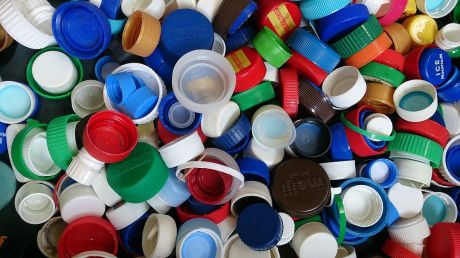Proteins to replace plastic

Bottle caps
By ProjectManhattan (Own work) [CC BY-SA 3.0 (http://creativecommons.org/licenses/by-sa/3.0)], via Wikimedia Commons
Modern society relies heavily on plastic for various applications, yet this material is extremely harmful to the environment. An EU-funded project is looking to replace this material with an environmentally friendly alternative from plant by-products.
Millions of tonnes of plastic are manufactured each year. Plastic is
environmentally harmful because it is not biodegradable and relies
heavily on fossil fuels for production. Plant-derived residues contain
compounds that can potentially be used as a renewable material and
ultimately present a viable alternative to plastics.
The project http://www.LEGUVAL.eu (LEGUVAL) (Valorisation of legumes co-products and by-products for package application and energy production from biomass) is an EU-funded initiative bringing industry and research partners together to produce renewable materials from legume by-products.
Thus far, methods to process materials have been investigated and various by-products have been identified by considering criteria such as production volumes and seasonality. By-products from peas, beans and lentils (all types of legume) were selected as viable protein sources.
Researchers optimised the extraction process to produce 95 %, 67 % and 64 % pure protein for peas, beans and lentils, respectively. They are also investigating the thermal and mechanical properties of these proteins. Furthermore, leftover biomass from the protein extraction process can also be used as biogas to contribute to the effectiveness of the overall process.
LEGUVAL is investigating by-products from legume processing to manufacture environmentally friendly alternatives to plastic. Since plastic manufacturing depletes fossil resources and contributes significantly to carbon emissions, this project can potentially contribute to a cleaner future.
published: 2015-11-13

